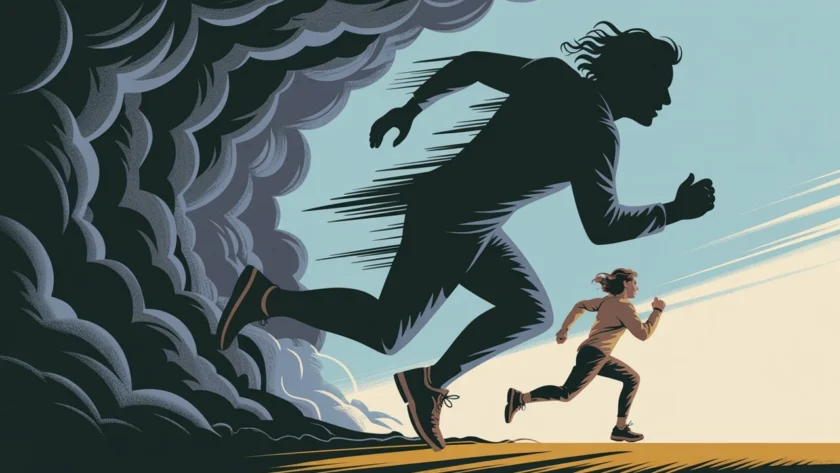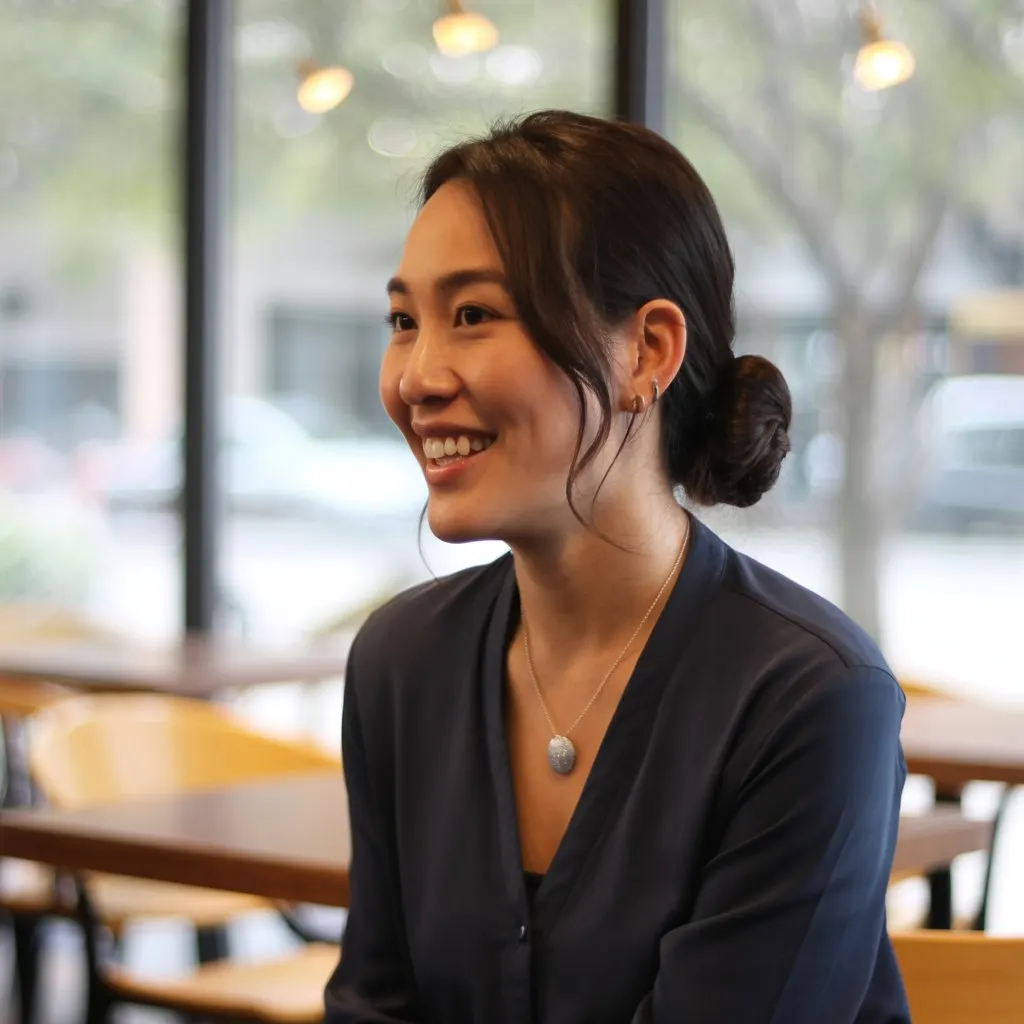I’ll never forget the morning I realized I’d stopped living my actual life. I was standing in my kitchen, coffee getting cold on the counter, staring at an invitation to my best friend’s wedding. My stomach knotted instantly. Too many people. What if I have a panic attack? What if I can’t get out quickly enough? Within seconds, I’d mentally crafted three different excuses for why I couldn’t go.
That’s when it hit me: I wasn’t just avoiding a wedding. I’d been avoiding everything. The grocery store trips I’d outsourced. The church small group I’d quit. The career opportunity I’d turned down. Each time I’d told myself I was just being “smart” about managing my anxiety. But here’s what I’ve learned the hard way—avoidance doesn’t manage anxiety. It feeds it.
If you’re reading this, chances are you’ve felt that same magnetic pull toward escape. Maybe you’ve canceled plans, dodged difficult conversations, or created an increasingly small world where you feel “safe.” And I want you to know something important: that instinct to run? It’s completely normal. It’s your brain trying to protect you. But it’s also the very thing keeping you trapped.
The Avoidance Trap: How Escape Becomes a Prison
There’s a reason avoiding our problems feels so good in the moment. When anxiety spikes—that chest-tightening, heart-racing, can’t-catch-your-breath feeling—and we remove ourselves from the situation, we get instant relief. It’s like our nervous system breathes a huge sigh and says, “See? We’re safe now.”
The problem is, our brain learns the wrong lesson. Instead of learning “that situation wasn’t actually dangerous,” it learns “escaping is what saved us.” So the next time a similar situation comes up, the anxiety alarm sounds even louder and earlier. Before you know it, the things you’re avoiding have multiplied, and the world you can comfortably navigate has shrunk.
I watched this happen in my own life like dominoes falling. First, I stopped going to the big Sunday service and only attended the small early morning gathering. Then I stopped going to that too, telling myself I’d just watch online. Then I stopped watching online because even that felt overwhelming. Within six months, my spiritual community—something that had once sustained me—had disappeared entirely, and I felt more alone than ever.
Scripture talks about this pattern, though not in psychological terms. In 2 Timothy 1:7, Paul reminds us, “For God has not given us a spirit of fear, but of power and of love and of a sound mind.” That word “sound mind” in the original Greek is “sophronismos”—it means self-discipline and self-control. When we let fear dictate our choices, we’re operating outside of what God designed for us. We’re letting anxiety be our master instead of our teacher.
Why Your Brain Wants You to Run (And Why You Shouldn’t Always Listen)
Let me share something that changed my perspective entirely. Our anxiety response isn’t broken—it’s actually doing exactly what it was designed to do. When our ancestors encountered a genuine threat—say, a predator in the wild—their bodies flooded with adrenaline, their hearts raced, and they either fought or ran. That response kept them alive.
The issue is that our modern anxious minds can’t tell the difference between a actual threat and a perceived one. Your brain responds to an awkward social situation or a stressful work presentation the same way it would respond to a physical danger. And when we consistently choose escape, we’re essentially telling our brain, “Yes, you were right to sound the alarm. That was dangerous. Good call.”
I remember my therapist—a godly woman who integrated faith with solid psychology—drawing me a simple diagram. She showed me how each avoidance strengthens the anxiety pathway in my brain, like walking the same trail through the woods until it becomes a deep rut. “The only way to create a new path,” she told me, “is to walk a different direction, even when it’s uncomfortable.”
That image stuck with me because it parallels what Jesus said in Matthew 7:13-14 about the narrow and wide gates. The easy path—the one most traveled—isn’t always the one that leads to life. Sometimes the path to freedom goes straight through the middle of what we fear most.
What Facing Your Anxiety Actually Looks Like
Here’s what I need you to understand: facing your anxiety doesn’t mean white-knuckling through panic attacks or forcing yourself into situations that genuinely aren’t safe. It’s not about being reckless or ignoring your body’s signals. Instead, it’s about learning to distinguish between real danger and the false alarms your anxiety triggers.
In my own journey, this meant working with my counselor to create what she called an “exposure hierarchy”—a fancy term for a list of anxiety-triggering situations ranked from least to most scary. We started small. Really small. For me, that meant staying in church for five minutes after the service ended instead of bolting the second the final amen was said.
Those first few times, my heart pounded and my palms sweated. Every fiber of my being wanted to leave. But I stayed, breathing through it, praying under my breath, reminding myself that discomfort isn’t danger. And you know what happened? Nothing. The thing I feared—having a panic attack in public, humiliating myself, not being able to escape—didn’t happen.
Each time I practiced staying present instead of fleeing, the anxiety peak got a little lower and passed a little quicker. I was retraining my brain, creating that new pathway my therapist had talked about. But more than that, I was learning to trust God in a whole new way.
Psalm 56:3 became my anchor during those early attempts: “When I am afraid, I put my trust in you.” Not “if I am afraid” but when. The fear itself wasn’t the problem or a sign of weak faith. What mattered was what I did with it—did I run, or did I stand firm and trust?
The Spiritual Side of Staying Present
There’s something profoundly spiritual about learning to stay present with our discomfort instead of escaping. In a culture that’s obsessed with comfort and constantly offers us ways to numb out—whether through substances, entertainment, or busyness—choosing to sit with difficult feelings is almost a counter-cultural act of faith.
I’ve come to see anxiety as an invitation, not an enemy. An invitation to press deeper into dependence on God, to practice the spiritual disciplines that actually transform us, to discover that His grace really is sufficient even in the moments when I feel like I’m falling apart.
Prayer changed for me during this season. It went from “God, please take this away” to “God, help me walk through this.” That shift might seem small, but it was enormous. I stopped seeing anxiety as something God needed to remove before I could function, and started seeing it as something He could meet me in the middle of.
I started practicing what my Christian counselor called “breath prayers”—short, simple prayers I could repeat while staying in anxiety-provoking situations. “Lord Jesus Christ, have mercy on me.” “I trust you, God.” “Your peace, my anchor.” Just a few words, synchronized with my breathing, keeping me tethered to truth when my thoughts started spiraling.
This isn’t about positive thinking or pretending everything’s fine. It’s about training yourself to stay connected to God’s presence even when—especially when—things feel overwhelming. It’s practicing what Paul describes in Philippians 4:6-7: bringing your anxiety to God through prayer, and experiencing His peace that transcends understanding.
Practical Steps to Start Facing Your Fears Today
Let me give you some concrete steps you can take, starting right now. These are things that worked for me and countless others I’ve walked alongside:
Start with prayer and honesty. Before you do anything else, have a real conversation with God about what you’re avoiding and why. Don’t spiritualize it or pretty it up. Tell Him you’re scared. Tell Him you’re not sure you can do this. Ask Him for courage and wisdom. I’ve found that God honors that kind of raw honesty far more than pretending we have it all together.
Make your list. Write down the things you’ve been avoiding, from easiest to hardest. Be specific. Don’t just write “social situations”—write “staying for coffee hour after church” or “calling my sister back instead of texting.” You can’t face what you won’t name.
Choose one small step. Pick something from the easier end of your list—something that makes you nervous but not terrified. This is important: you’re not trying to conquer your biggest fear tomorrow. You’re building the muscle of staying present with discomfort, and that starts small.
Set up support. Tell a trusted friend or family member what you’re doing. Ask them to pray for you. Better yet, ask them to go with you the first few times. There’s no shame in needing support—even Jesus sent His disciples out in pairs.
Practice staying. When you’re in the situation and anxiety hits, resist the urge to escape immediately. Give yourself permission to feel uncomfortable. Breathe slowly—in for four counts, hold for four, out for six. Pray your breath prayer. Remind yourself that anxiety peaks and passes. It always passes.
Reflect and celebrate. After you do the thing you’ve been avoiding, take time to acknowledge it. Thank God for helping you through it. Write down what you learned. Notice that you survived—and probably discovered it wasn’t as catastrophic as your anxiety predicted.
When Professional Help Is Part of the Answer
I want to say something important here: choosing to face your anxiety doesn’t mean doing it alone, and it doesn’t mean refusing medication or professional help. Some of the strongest, most faithful people I know take medication for anxiety. Some work with therapists. Some do both.
There’s a dangerous belief in some Christian circles that if your faith were strong enough, you wouldn’t need “worldly” help. That’s simply not biblical. Luke was a physician. Paul told Timothy to take wine for his stomach troubles. God gives us wisdom through medical professionals and therapists—that’s a gift, not a failure of faith.
I found healing through a combination of Christian counseling, developing spiritual practices, and yes, for a season, medication that helped calm my nervous system enough that I could actually do the hard work of facing my fears. God used all of it. None of it contradicted my faith; all of it supported it.
If your anxiety is severe, if you’re having frequent panic attacks, if you’ve developed agoraphobia or your world has shrunk significantly, please consider reaching out to a professional. A Christian counselor who understands both psychology and faith can be an incredible guide on this journey. There’s no virtue in suffering unnecessarily when help is available.
The Freedom That Comes From Staying
I wish I could tell you that facing your anxiety is easy or quick. It’s not. It’s some of the hardest work I’ve ever done. There were setbacks and days when I felt like I’d made no progress at all. But here’s what I can tell you: I made it to my best friend’s wedding. I not only attended—I gave a toast. With shaky hands and a racing heart, yes, but I did it.
More than that, I’ve reclaimed my life. I’m back in community. I’m taking opportunities I would have automatically declined before. I still feel anxiety—probably always will—but it doesn’t run my life anymore. The world has gotten bigger again, and with it, my capacity for joy, connection, and purpose.
Jesus said in John 10:10, “I have come that they may have life, and have it to the full.” That abundant life He promised? It doesn’t exist inside the shrinking circle of what feels safe. It exists out there, in the fullness of relationships and experiences and calling, in the places that sometimes scare us.
God isn’t asking you to be fearless. He’s asking you to be faithful—to take the next small step forward even when you’re afraid. To trust that He’s with you in the middle of the discomfort, not just on the other side of it. To believe that the path through your anxiety, not around it, is the one that leads to freedom.
Your Next Step Forward
So here’s my question for you: what’s one thing you’ve been avoiding that you could face this week? Not eventually, not someday—this week. What’s that small, scary step you could take, armed with prayer and maybe the support of someone who loves you?
I’m not going to tell you it won’t be uncomfortable. It will be. But I can promise you this: on the other side of staying present with your fear, you’ll find a little more freedom. A little more confidence. A little more evidence that God’s promises are true and His presence is real.
You don’t have to conquer everything today. You just have to show up for the next five minutes and trust that God will meet you there. He will. He always does.
The life you long for—the one where anxiety doesn’t call the shots—it’s waiting for you. Not in some distant future when you’re “fixed,” but in each small act of courage, each moment you choose to stay instead of escape, each step you take forward even with trembling legs.
Your heavenly Father is so proud of you for even considering it. Now, with His help, take that step. Face that fear. Stay present. Watch what He does.




